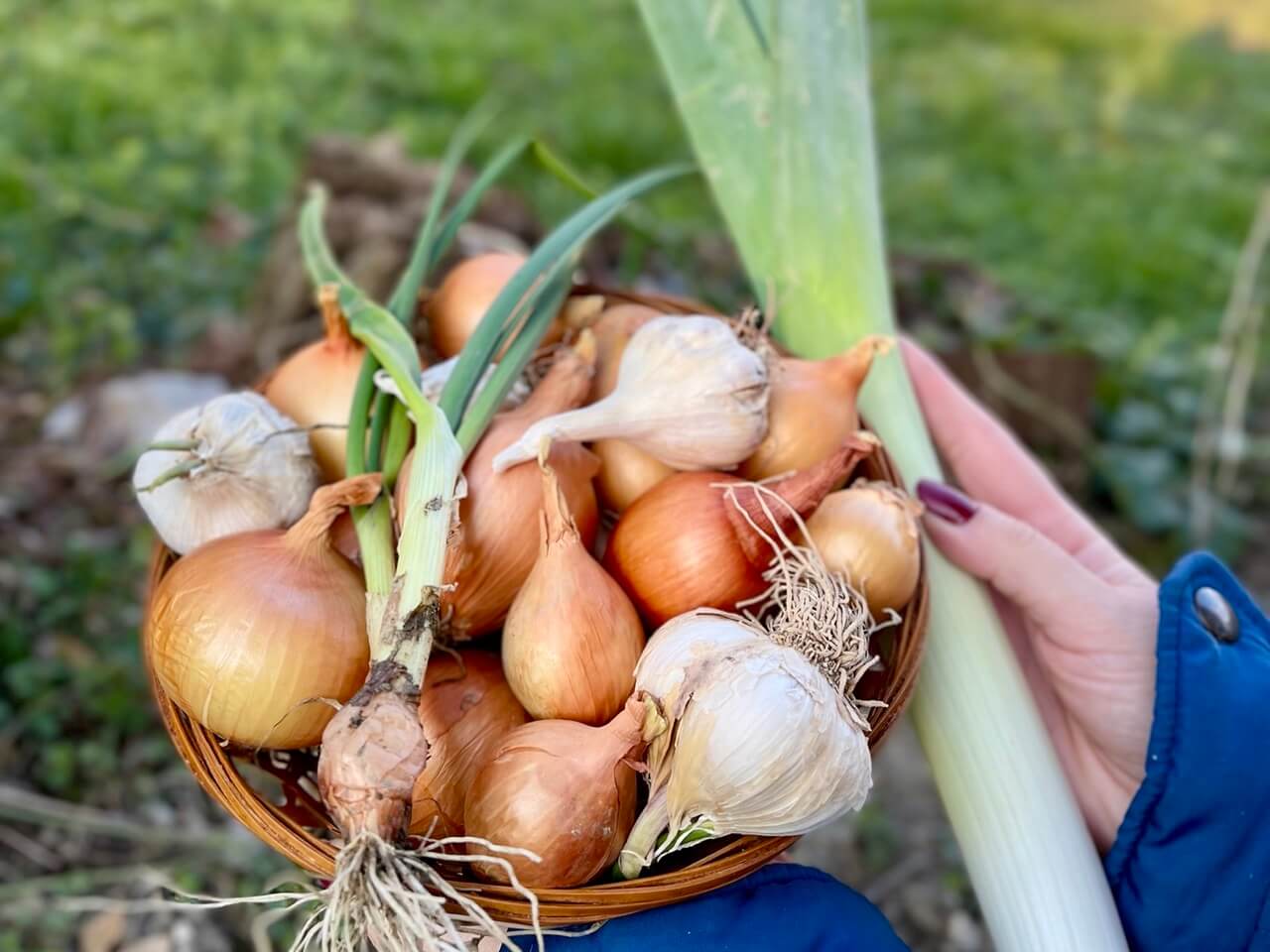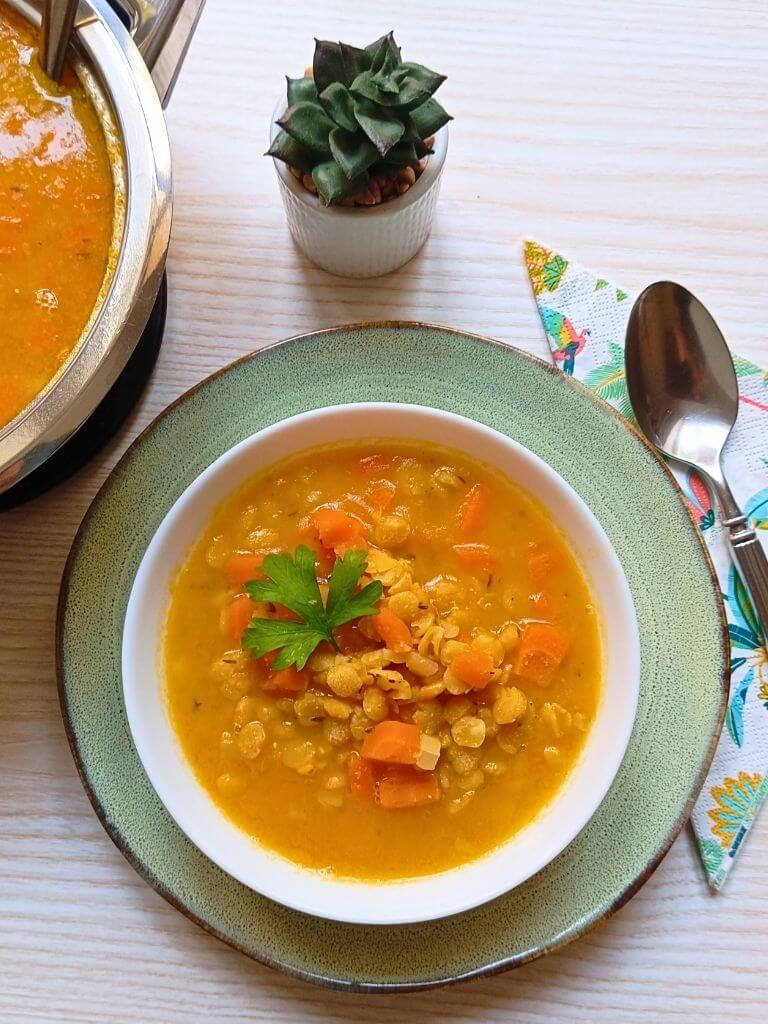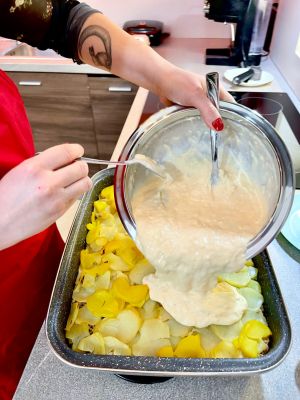
Allium-free diet is a dietary requirement where there are no alliums present in the meals, snacks, and food that is consumed. Alliums are onion, garlic, chives, leeks, ramps, and shallot. People with allium allergy are required to follow a diet without alliums, and surprisingly a diet without alliums can be beneficial for others too. Continue reading to learn more about an allium-free diet.
First, let’s get things straight. Allium-free diet is not a weight-loss diet! Maybe some of the recipes on this website are low in calories, and you can enjoy them while doing weight loss, but an allium-free diet is a serious dietary requirement for everyone with an allium allergy, or allium intolerance.
Secondly, and worth remembering that if you have an allium allergy, and do not follow an allium-free diet, it can cause various symptoms and it can even be deadly. Symptoms range from mild ones like having skin rash and upset stomach to serious ones such as anaphylaxis! Anaphylaxis is a life-threatening allergy reaction and it requires immediate medical attention. Allium allergy is equally dangerous as any other food allergy.
When it comes to allium intolerance, it is not deadly like allium allergy, but exposure to alliums can cause lots of harm in the long run. If you have an allium intolerance, it is best to stick to the allium-free diet.
Finally, a diet without alliums should also be followed by everyone who has IBS, SIBO, GERD, reflux, gallstones, or a sensitive stomach. Onion, garlic, and other alliums are very aggressive on the stomach and bowels, and because of that, they can cause irritation or trigger attacks (gallstones). However, in these cases consuming alliums will not be deadly.
No allium diet and savory food recipes
When you are reading cookbooks, you probably notice that the majority of the savory food recipes start with chopped onion and minced garlic. When it comes to an allium-free diet these steps must be avoided. Onion, garlic, chives, leeks, ramps, and shallots are not allowed in the allium-free diet! In the culinary world, they are used to bring flavor to the food, and they are the most popular food aromatics in the world.
Luckily, there are a lot of ways to bring flavor to meals, and onion, garlic, and other alliums are not the only ones that give the flavor to the food. Click here for delicious and full of flavor allium-free recipes.
Allium-free diet and allium powder
Alliums in powder form are extremely popular, and shops, products, ready meals, and the majority of snacks are full of them. You can find in any store at the spice department, onion powder, garlic powder, garlic powder salt, and many more.
Besides looking at us from the shop shelves, onion powder, and garlic powder are used as a seasoning in almost every meal. Besides that, many people are suggesting using allium in powder form as a substitution for raw onion and garlic. But are onion powder and garlic powder safe when it comes to an allium-free diet?
In powdered form, onion and garlic are not high in fructans anymore, so they are allowed in the Low FODMAP diet – a dietary suggestion for IBS and SIBO. Even though they are low in fructans, they still contain the enzyme that is responsible for allergic reactions.
Enzyme Alliin Lyase or Alliinase is an enzyme that is responsible for allium allergy and allium intolerance. And since onion powder and garlic powder still contain the enzyme, they can trigger allergic reactions or cause intolerance. Also, be careful with dehydrated onion and dehydrated garlic because they act the same as the powder form and cause allergic reactions. For more information on why people have food allergies click here.
No alliums diet and allium-infused oils
Allium-infused oils (usually garlic) are cooking oils mixed with crushed alliums or dehydrated forms of alliums. In many places, it is suggested to replace alliums with allium-infused oils. But are allium-infused oils safe alternatives when it comes to the allium-free diet?
Allium-infused oils are low in fructans in the same way as powdered forms of alliums, so they are allowed in the Low FODMAP diet, which is good news if you have IBS or SIBO and like the flavor of the garlic or onion.
However, mixing alliums with oil will not remove the enzyme Alliin lyase or Alliinase which is responsible for allium allergy and allium intolerance. Allium-infused oils can be deadly for everyone with allium allergy because they can cause anaphylaxis!
Grocery shopping and no alliums diet
Did you know that the majority of the food in shops is full of hidden alliums?
In every corner of the world, food labeling is a gray area. Only small amounts of the food allergens are regulated to be written on the label. Besides that, there is a sentence “it may contain…” where producers aren’t being transparent are they using the food allergen in the product or not. Unfortunately, producers can interpret the rules and label the food as they wish.
Alliums are completely forgotten when it comes to food labeling, and producers don’t have to put on the label that they use alliums. They can hide alliums in flavoring, natural flavoring, seasonings, and spices. It is all on the producer whether it lists alliums on the label or not. The safest is to contact them and ask if they use alliums in the product that you wanna try.
Lastly, producers can change formulas whenever they want, so keep your eye out for the products that say new formulas. In case you come across the product that you are using but you see a little label saying a new recipe or new formula, contact the producer to know if it is still safe for you.
Allium-free diet and spices
Spices can be tricky. The majority of spice blends like cajun seasoning, everything bagel seasoning, and taco seasoning are not allowed. They contain alliums in powdered form.
One warning! Some spice blends do not contain alliums, (like Italian seasoning), but some producers like to add alliums to the mix. Read the label to avoid the confusion!
There are a lot of ways to bring flavor to food. Buy herbs separately (e.g. only ground
rosemary, dry sage, dry oregano..) and add it to the food. You can create wonderful herb combinations at home, and bring flavor to the meals. Check out my recipe where I’m using a combination of herbs for a delicious flavor.
Summary
To summarize, no allium diet is a dietary requirement for everyone with allium allergy and allium intolerance.
Allium-free diet is a diet without onion, garlic, chives, leeks, ramps, and shallots.
Allium-infused oils, powdered forms of alliums, dehydrated onion, and dehydrated garlic are forbidden when it comes to no allium diet because they contain the enzyme that is responsible for allergic reaction and it triggers intolerance.
When it comes to spice blends, only the blends that don’t list alliums, seasoning, flavoring, and spices are safe. If you aren’t sure that the product that you want to try is free from alliums, contact the producer to be sure.
Source





